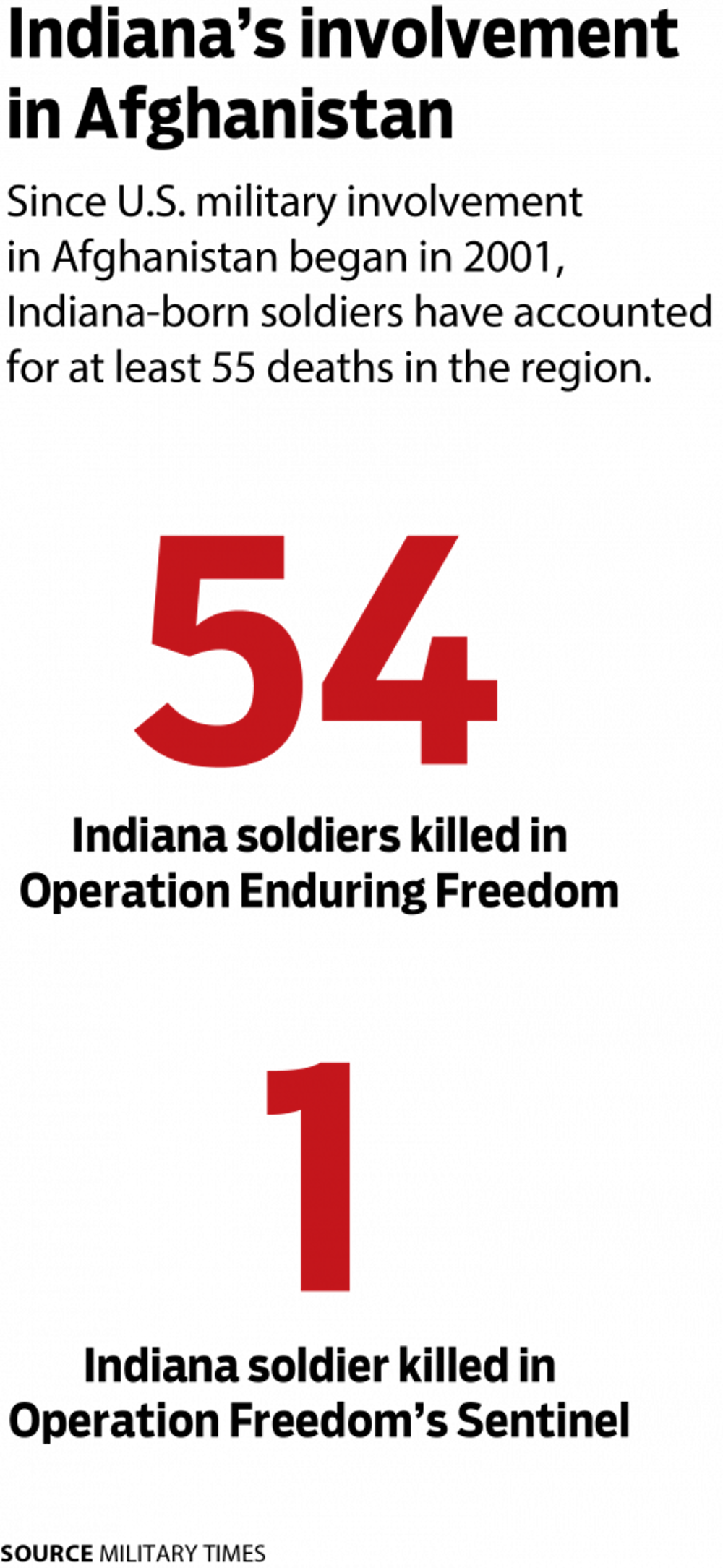Indiana leaders responded after President Donald Trump outlined his plan for ongoing United States military involvement in Afghanistan in a speech at Fort Myer in Arlington, Virginia on Monday night.
The current conflict in Afghanistan began with Operation Enduring Freedom in October 2001, when the U.S. invaded the country as part of its global war on terror. Though the initial invasion took place under the Bush Administration, the conflict continued under former President Barack Obama after he announced Operation Freedom's Sentinel in December 2014.
This is the longest war the U.S. has been involved in to date.
“I share the American people's frustration,” Trump said in the speech. “I also share their frustration over a foreign policy that has spent too much time, energy, money and, most importantly, lives trying to rebuild countries in our own image instead of pursuing our security interests above all other considerations.”
The president committed more troops to the region without going into specifics and called the consequences of a rapid exit from the region unacceptable. In a Jan. 11, 2013 post on his personal Twitter account, he said something different.
“Let’s get out of Afghanistan. Our troops are being killed by the Afghanis we train and we waste billions there. Nonsense! Rebuild the USA.” Trump wrote in the post.
Sen. Joe Donnelly, D-Indiana, hoped the president would come to Congress with a clear strategy for U.S. victory in the region, he said in a statement released after Trump's speech.
“The mission in Afghanistan should be based on conditions on the ground, where the Taliban and ISIS threaten the stability of the country and U.S. national security interests,” Donnelly said.
Rep. Todd Rokita, R-4th District, who is running for Donnelly's Senate seat, said in a statement Tuesday that the president and vice president have proven national security was a priority for their administration.
"I believe this decision regarding Afghanistan and the region comes after intense deliberation especially since the review on U.S. policy began day one of the Administration," Rokita said.
Rep. Luke Messer, R-6th District, who is also running in the Republican primary in hopes of unseating Donnelly, released a similar statement Tuesday. He said Trump's speech was strong, and he was encouraged to see the president honor military and bring clarity to the war on terror.
"I commend the Trump Administration for refocusing our military efforts, supporting our troops, and laying out a clear strategy for the region," Messer said.
Indiana-born soldiers have accounted for at least 55 deaths in the region since the conflict began in 2001, according to a database compiled by the Military Times. The most recent, according to the database, was Columbus Army Sgt. Jonathon Hunter, who was killed by an improvised explosive device attack Aug. 2 near Kandahar, Afghanistan.
The U.S. originally entered Afghanistan after the Taliban refused to extradite Al-Qaida leader Osama Bin Laden after 9/11. Bin Laden was killed by U.S. forces in a May 2011 raid in Abbottabad, Pakistan.
“Today 20 U.S.-designated foreign terrorist organizations are active in Afghanistan and Pakistan,” Trump said Monday. “The highest concentration in any region, anywhere in the world. For its part, Pakistan often gives safe haven to agents of chaos, violence and terror.”
He appeared to put pressure on Pakistan and its neighbor, India, and mentioned that the conflict was complicated by the two countries’ possession of nuclear weapons. Trump said he inherited a difficult situation in the region but did not have the luxury of going back in time to make better decisions.
“But one way or another, these problems will be solved,” Trump said. “I'm a problem solver and in the end, we will win.”
Jesse Naranjo
UPDATE: A Washington Post fact check analysis of Trump's speech found his claim about 20 active terrorist organizations in Afghanistan and Pakistan to be false. The Department of State only lists 13 active terrorist organizations in the region.






